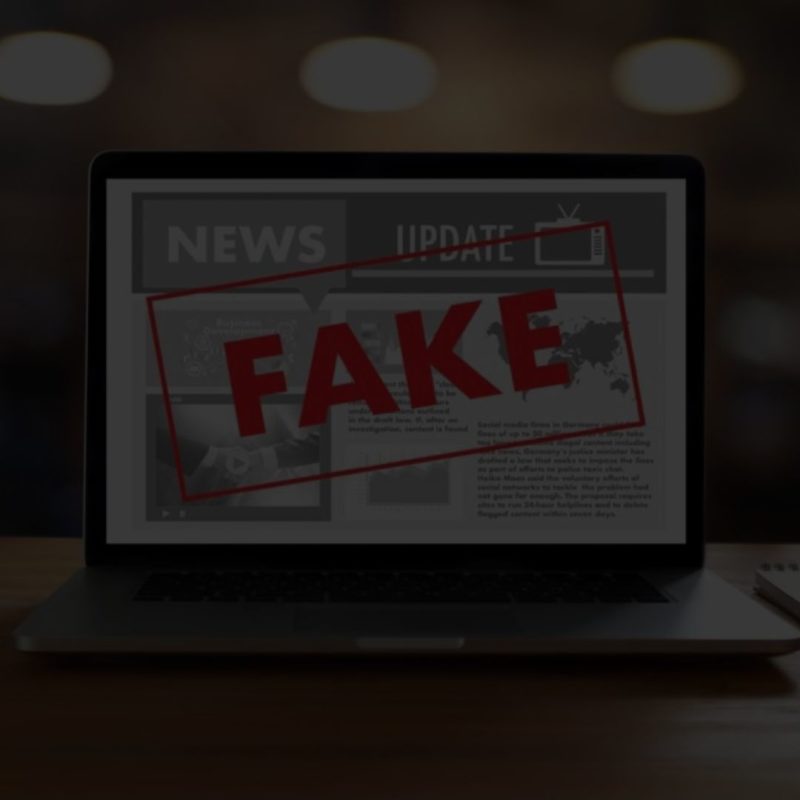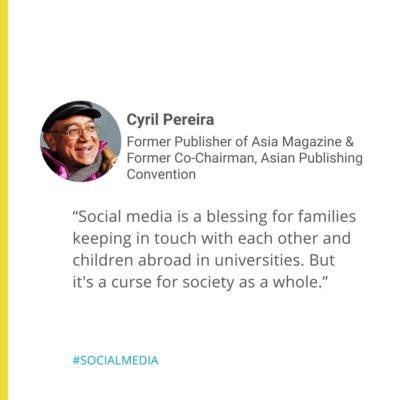Blog Post
The 21st century has witnessed some of the greatest technological revolutions of all times. The internet has eased our lives to such an extent that we often oversee its severe drawbacks. As much as technology has positively boosted our lifestyles, it also continues to negatively impact our lives everyday.
One of the major issues that we face is the increasing nuisance of unauthentic and fake news sources. Such platforms are created in order to spread hate, false alarm, fear, panic and instigation in the minds of the readers.
The issue of fake news and forged data is highly evident in India and continues to create problems for authentic news sources. Forgery, bogus journalism, fake news sources etc are being alarmingly normalised in India and have also led to several hate speech and hate crimes in Northern parts of the country.
With the rise of social media platforms like Facebook and twitter, there is very less space left for traditional and authentic journalism. People have started believing everything that they read on Facebook, twitter or the so called ‘Whatsapp university’. The once golden newspaper industry, has now been wrapped in the blanket of fake, instigating and hate spewing source of news
About our podcast:
The Brand Called You brings you stories of hundreds of professionals, entrepreneurs and change driven individuals to inspire and motivate you! We have interviewed personalities from several professions and diverse backgrounds and nationalities!
About Cyril:
In S3 of the podcast we featured a dedicated media professional who has been in the industry for over 35 years and continues his amazing contributions in making the media industry a change driven and safer place.
Cyril Pereira is a media professional, originally from Malaysia , now based out in Hong Kong for the last 35 years.
He coaches data journalism for insights into society and policy review. Before this, Cyril was a publisher of an Asian magazine and Senior Executive with South China Morning Post. He was also on the board of the Bangkok Post. Cyril is also an unprecedented Chairman of the Society of Publishing in Asia that brings together all global brands in media.
In an interview with our host Frits Bussemaker, Cyril talks about his work in data journalism and the stance of the oldest and most classic media industries- newspaper.
Cyril on the dying newspaper industry:
The newspaper industry is one of the oldest and most traditional media sources. With technology and the increasing dependency on social media for daily news, the newspaper industry is losing its significance.
“I would say that what it used to be, is dying. What it is transforming into is actually quite dynamic in life. And by that I mean, the smart publishers and editors after initially resisting change embraced it and some of the best examples are New York Times and Financial Times- who have become multimedia organizations without compromising the integrity of the content.”
What is data journalism?
Data Journalism is a field that uses fact based data extracted from the government and public;
and uses it for bigger and better purposes. It is a journalistic process based on analyzing and filtering large data sets for the purpose of creating or elevating a news story.
It is the creation of compelling stories with the help of the enormous amount of data that is available online as well as offline. And data (internal as well as comparative) that is drawn from multiple sources. The usage of data that is drawn from real sources makes the news story more authentic and reliable.
Cyril’s advice for general public — on recognizing fake news:
There are some simple basic steps that the average person can take.
When you receive something that sounds either proven to be true or too outrageous to be true, first of all check the source. If the source is something you haven’t heard of or it’s a link that you’ve never seen before then you can almost say that it is a hundred percent fake.
Sometimes, they put a known source as a source then the public can check on the website of the known source for the same news article (for eg: the economist)
And if it is a news item that should concern the public as a whole, check why it is not on any of the major platforms. If it is not also on any of the major platforms, something is fishy about it.
So you can check writers, you can check Bloomberg, you can check CNN, you can check BBC. If that item is not on the top news of those platforms, chances are it was invented.
Some consequences of misleading information in India:
India has faced several issues as a result of misleading and false information circulated in the country.
- According to a survey conducted by Microsoft, 60% of Indians have come across fake news against the global average of 57%.
- The coronavirus/global pandemic of 2020 saw a major spike in misleading information about the virus/vaccination/precautions/false allegations etc. People posting hate comments for targeted religions/castes and alleging they were responsible for the rise in covid cases was also very evident.
- Communal riots in the Delhi NCR territory in February were also majorly ignited due to false information and online hate speech.
- The citizenship amendment bill that caused a wave of distress and a series of protests in the country also led to instigating comments and hate speech online which also resulted in fake news stories.
These are only a few instances of nuisance caused by misleading news and information online. These not only highlight the importance of real and true journalism but also throw light on the shocking consumption of false news in the country.
Conclusion
As responsible members of a democracy, it is our duty to focus on the content we consume. Ignorance and irresponsible use of technology has cost lives in the country we live in.
Keeping that in mind, it is important that we circulate authentic news and only refer to trusted sources for our content consumption.
— — — — — — — — — — — — — — — — — — — —
The Brand Called You, covers the stories of many such artists, entrepreneurs, social workers and professionals. Visit The Brand Called You for content on Entrepreneurs and Professionals from a wide spectrum of various backgrounds.



